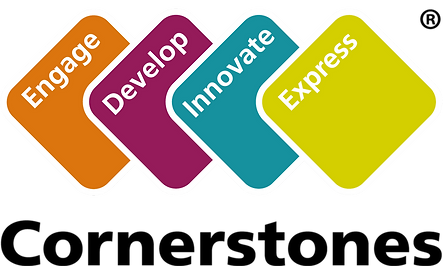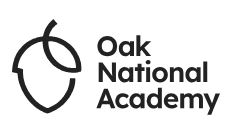Our Curriculum

Cornerstones Curriculum
We have a broad and balanced curriculum in place, with clear progression across subjects, year groups and key stages, covering the national curriculum. In order to gain a thorough understanding and enjoyment, units are taught in blocks (usually each half term) with a range of cross-curricular links for foundation subjects. This follows the Cornerstones curriculum theme which outlines learning under four distinct phases:
- Engage
- Develop
- Innovate
- Express
We use a range of teaching styles, resources and stimuli to teach the curriculum and children take part in enriching and stimulating trips and events. We expect a high standard and quality of work produced, particularly in relation to written and spoken English and presentation.
Alongside daily topic lessons, the children will spend one day each half term being creative. These 'Creative Days' will form part of their topic and may include singing, dancing, art or DT.
Click on the subject below to read an overview of our subject curriculum across our school:
English
Writing
At Fairhouse, our aim is for all children to leave with the ability to communicate through the written form, in a range of contexts.
We adopt a thematic approach to writing which matches our topics, which means children already have a secure amount of knowledge and vocabulary to support them.
In KS1, children follow a one-week cycle which promotes speaking and listening skills to support writing
In KS2, children follow a two-week cycle. Their first week aims to practice and develop skills associated with the genre, and the second week puts the emphasis on children writing more independently.
Key skills are clear at each year group. Click here to see our skills progression maps
Handwriting is taught through ‘Letterjoin’ in short 15minute sessions, 2-3x a week.
Spellings is taught through the PiXL spelling scheme in short 15 minute sessions, 2-3x a week.
Our approach incorporates best practice and up to date research, such as:
- A strong emphasis on writing
- Key GPS skills are taught in context
- There is consistency with delivery across year groups, which supports the children to become confident and independent
- There is planning time for children to gauge understanding of the whole text
- There are speaking and listening opportunities, particularly in planning lessons and in the KS1 writing cycle
- Good modelling and good models are used to expose children to good quality writing
- Metacognition opportunities and self/peer analysis is prominent throughout the writing cycle
- Where possible, experiences are used to engage and support the writing sequences
- Editing and revising is built in at the end of sequences
Reading
Each year group has core texts which are read and studied in good detail. These texts are carefully selected to ensure progression in difficulty based on word/language/length and context. We have used the Centre for Literacy in Primary Education (CLPE) and other research to help us select appropriate, quality texts. Our texts usually match our half termly topics.
Reading is a high priority at Fairhouse. All children are expected to read at home at least 5 times a week.
In Reception and year 1, we have a weekly book focus. The children will become very familiar with this book through the week.
Every class has a dedicated 15 minute story time, where the class teacher reads to the children using the class novel.
In Key stage 2 (and halfway through year 2), the children use their core text to develop a greater understanding and depth of the text in reading sessions on Mondays and Fridays. The Monday and Friday sessions place a focus on authorial intent, predicting, summarising and understanding of the text as a whole. On Tuesdays, Wednesdays and Thursdays, the children study a theme of reading which changes weekly. This theme is linked across three texts which have been selected to develop a broad range of reading experiences and genres. Within these sessions, there is a high focus on retrieval and inference skills.
Early reading is taught using Read Write Inc, which teaches the children to read accurately and fluently with good comprehension. Children learn to form each letter, spell correctly and compose their ideas step-by-step.
Children in Reception and KS1 will take home 2 books: A Read, Write Inc. (RWI) phonics based book and one other book from our book banding system which exposes the children to more words.
Children who have finished the RWI scheme will take home book from our book banded system, which is matched to their reading level and context appropriate. The children are responsible for changing these as they are needed.
Mathematics
We follow the Oak Academy curriculum for maths, which is underpinned by the work of NCETM (National Centre for Excellence in Teaching Mathematics).
Our curriculum provides coherently sequenced units to allow pupils to develop a deep, sustained understanding of mathematics at Key Stages 1 and 2. Evidence informed approaches including variation and the development of core sets of models and representations build pupil knowledge and conceptual understanding. Central to the design of our curriculum is coherence in the development of key threads in mathematics. These threads reflect the structure of the National Curriculum, allowing teachers to track the development of key knowledge and skills. Reasoning and problem solving are integral. The curriculum promotes the use of vocabulary allowing pupils to articulate their thinking and strengthen both their procedural knowledge and conceptual understanding. Use of talk allows pupils to explore mathematical connections and use key vocabulary accurately when presenting their reasoning.
At the beginning of each session, the children will practice and review arithmetic skills that have already been taught. Each Friday, they have 10 mixed arithmetic questions which helps teachers to make assessments on what has been secured and which areas need further development.
Children are given time to explore concepts in order to gain a deeper understanding of the learning at the beginning of the unit. It is vital that children use the correct mathematical vocabulary which will be modelled by the class teacher within lessons and used on working walls.
In addition to a daily maths lesson, our school also uses the "Mastering Number" programme in many year groups. This is a daily 15 minute activity which focusses on deep understanding and fluency in aspects of number.
You can see our curriculum maps for mathematics by clicking on the image below:
Times tables:
From 2022, children in year 4 will be tested on their times tables. The children need to be taught procedural fluency and conceptual fluency.
The school has a curriculum map of when each times table should be taught.
PSHE and RSE
Fairhouse Primary has developed its own PSHE curriculum using units form "Jigsaw" and enhancing these with bespoke units for our own children. Each term has a focus: Living in the wider world, Relationships and wellbeing and Health. You can see how these themes are broken down into small units and how they progress across our school from reception to year 6 by clicking here.
RE
Here at Fairhouse, we follow the Kapow Primary RE scheme to teach RE. This scheme teaches children about key religions and world views from Reception to year 6. . You can see more about the units by clicking here.
Music
At Fairhouse we follow Charanga Music for our curriculum. Charanga works seamlessly with the national curriculum ensuring that learners revisit the interrelated dimensions of music: pulse, voice, pitch and rhythm- building upon previous learning and skills. The learning within this Scheme is based on: Listening and Appraising, Musical Activities, creating and exploring and singing and performing.
Charanga provides an integrated, practical, exploratory and child-led approach to musical learning. Each Unit of Work comprises the strands of musical learning which correspond with the national curriculum for music:
1. Listening and Appraising
2. Musical Activities
a. Warm-up Games
b. Optional Flexible Games
c. Singing
d. Playing instruments
e. Improvisation
f. Composition
3. Performing
You can see which units are covers in our curriculum by clicking here
In addition to our taught lessons using Charanga, all of our children have the opportunity to learn a stringed instrument. Children in year 4 take part in learning the ukulele through Essex Music Services' wider opportunities.
Computing
We are very proud of our computing curriculum at Fairhouse. We follow Rising Stars for our curriculum which ensures that the children have full coverage of the computing curriculum and that the progression is built in. We have a HLTA with fantastic subject knowledge who delivers our curriculum. We also boast a 32 PC computing suite where every child has access to a good quality PC.
You can see our computing curriculum by CLICKING HERE.
Computing is also taught at other times within our Cornerstones curriculum where skills are embedded.
Physical Education
At Fairhouse we pride ourselves on our provision for PE. Our children receive 2 lessons of PE a week. We have a sports coach who delivers our PE lessons, which are overseen by our PE subject lead. We follow Get Set PE curriculum which maps out skills and coverage of sports to ensure the curriculum is progressive. We also offer a wide range of clubs at school to further develop skills. Our children in year 3 take part in 1 hour swimming lessons and we offer catch up and further swimming in year 6. CLICK HERE to see our PE curriculum overview.
Road Maps
We have added Road Maps of knowledge and Skills so you can see where these skills are taught in our Cornerstones Curriculum for Geography, History, Design Technology, Art and Design and Science.
Reception topics:

Year 1 topics:

Year 2 topics:

Year 3 topics:

Year 4 Topics:

Year 5 Topics:

Year 6 Topics:


